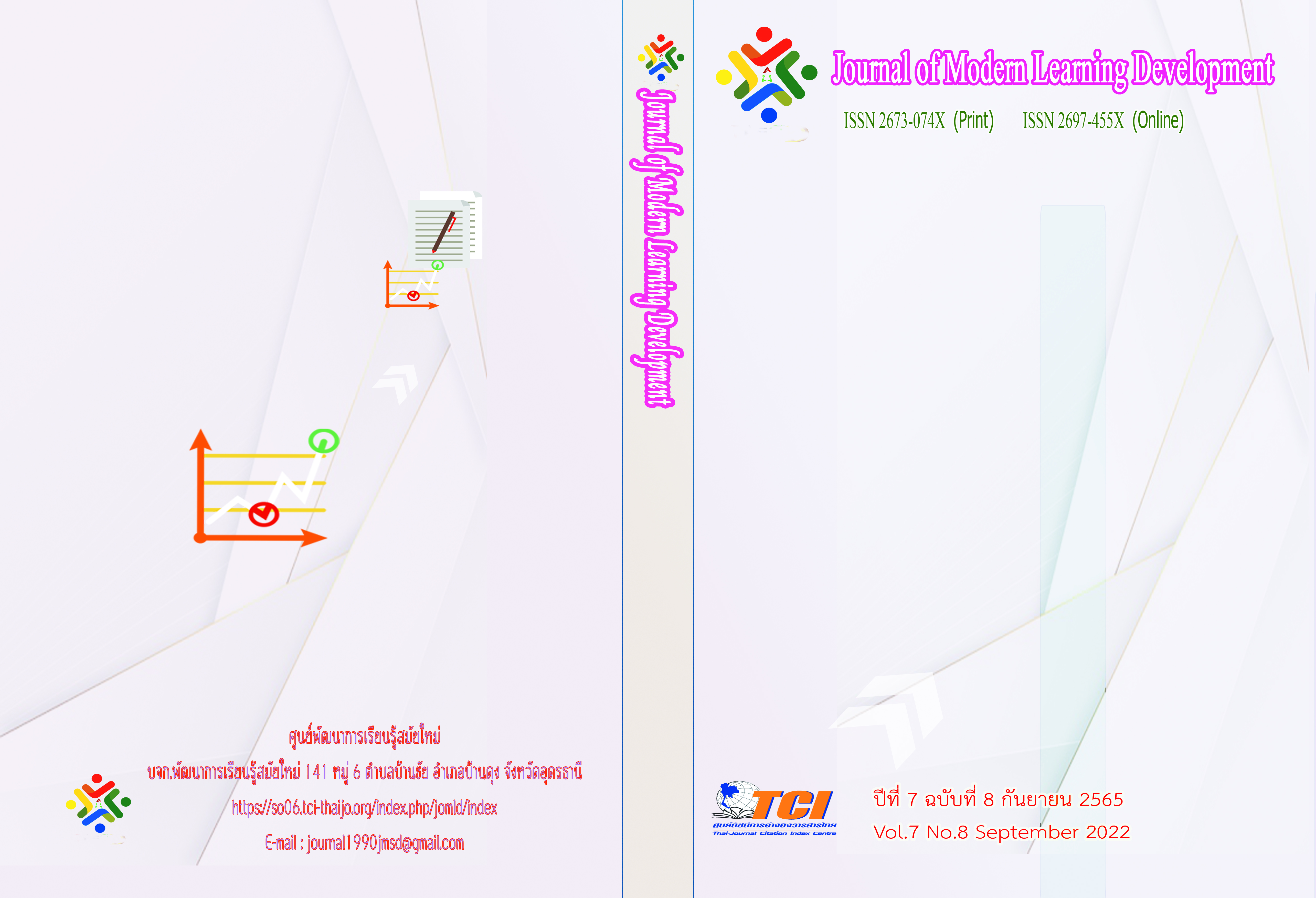Seven Virtues of Great Men and Organizational Administration
Main Article Content
Abstract
The decision-making in administration influenced the success of organizational administration because it was the process of critical thinking and data synthesis to create, to assess and to select the best alternative choices, which was utilized as an operational or practical way to achieve the operational objectives. The effectiveness of decision-making depended upon two main factors: the critical thinking skill and data or information for analysis, which the academic called the managerial knowledge because it was the content that the administrators should know to enhance administrative functions. With the purpose of education, the managerial knowledge was divided into four aspects: environmental, organizational, task or mission, and personal. According to the comparative analysis between the managerial knowledge and the seven factors of Sappurisa-dhamma, the Buddhist teachings on the qualities of a good man or a perfect man, the paired relationship between them was found: the environmental aspect paired with Parisanyuta (the knowledge of the society), the organizational knowledge paired with Atthanyuta (the knowledge of the purpose or the consequence), the knowledge of tasks or missions paired with Dhammanyuta (the knowledge of the cause), Mattanyuta (the knowledge of the moderation), and Kalanyuta (the knowledge of the proper time), and Puggalaparoparanyuta (the personal knowledge and the knowledge of the individual), and Attanyuta (the knowledge of oneself). The synthesis of content relationship revealed coherence between the qualities of a good man and the organizational administrative process. In addition, the administrator clinging to the seven qualities of a good man or the seven virtues of a gentleman. The results of the synthetical linkage distinctly demonstrated the particular relationship and consistency between the seven factors of Sappurisa-dhamma and the managerial administration processes. In addition, the administrators adhering to Sappurisa-dhamma were qualified not only as good and perfect men, but as successful administrators, as well.
Article Details
References
Sunthornyut, Thorn. (n.d.). Principles and Theories of Educational Administration. Chonburi: Department of Educational Administration, Faculty of Education, Burapha University.
Phra Dhammakittiwong (Thongdee Suratejo). (2005). Dhamma Language. Bangkok: Lieng Chiang Printing House.
Phra Dhammapidok. (P. A. Payutto). (1997). Leadership: Importance to Develop People and the Country. Bangkok: Dhamma Sapha.
Phra Dhammapidok. (P. A. Payutto). (1997). A Constitution for Living: Buddhist Ethics for Good Life. Bangkok: Amarin Printing and Publishing.
Srisongkram, Phramaha Somkuan. (2007). A Study of the Relationship between Sappurisa-dhamma, Bala-dhamma, and Work Practices of School Administrators in Southern Krungthon Area Group under Bangkok Metropolitan Administration. M.Ed. Thesis in Educational Administration. Bangkok: Srinakharinwirot University
Mueangchan, Wantana. (2001, July). Educational Revolution: Virtues of Administrators and Their Roles on Educational Quality Assurance. Journal of Wittayacharn. 100 (4), 21-25.
Somdet Phra Sangharat (Charern Suwatthano). (2006). Dhamma Study. Online. Retrieved on November 30, 2021, from http://mahamakuta.inet.co.th/study/study64/mk6412.html.
Navikarn, Somyot. (1979). Administration. Bangkok: Duangkamol.
Phinthupan, Huan. (1985). School Administration. Bangkok: Odeon Store,
Anthony, William P. (1981). Management: Competencies and Incompetencies. California: Addison Wesley Publishing Co., Inc.
Brown, Warren B. and Moberg, Dennis J. (1980). Organization Theory and Management: A Macro Approach. New York: John Wiley and Sons.
Deep , Samuel D. (1978). Human Relations in Management. New York: Macmillan Publishing Co.
Draft, Richard L. (2000). Management. 5th ed. New York: The Dryden Press.
Griffiths, D.E. (1959). Administrative theory. New York: Appleton-Century Crofts.
Katz, Robert L. “Skills of an Effective Administrator,” Harvard Business Review. (September- December, 1974).
Pfiffner, Jahm M. and Sherwood, Frank P. (1960). Administrative Organization. Englewood Cliffs, NJ: Prentice - Hall, Inc.
Stoner, James A. F. (1985). Management. 2nd ed. New Delhi: Prentice - Hall of India, Private Limited.
Sergiovanni, Thomas J. et al. (1987). Educational Governance and Administration. 2nd ed. Englewood Cliffs, NJ: Prentice – Hall.


